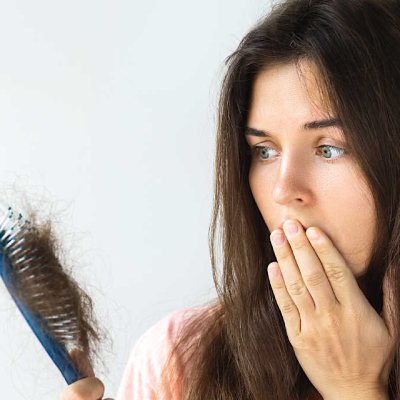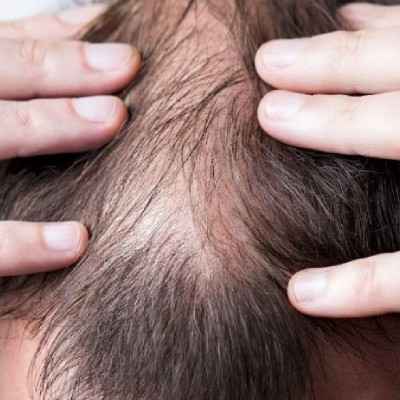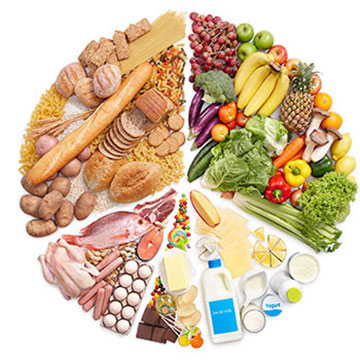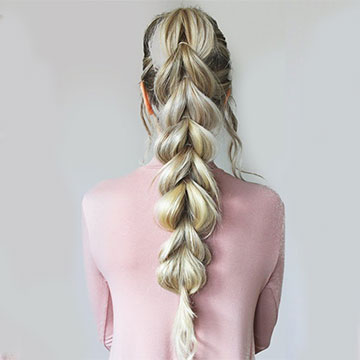8 Sure-shot Remedies to Treat a Dry Scalp, As Explained by Experts

31 March 2022

Hair Experts @ AHS

A dry scalp is a condition that most of us face, whether we know it or not. Many conditions can lead to a scratchy scalp. In most cases, a scratchy scalp is due to dirt and grime. However, several other reasons could be behind that itchy or flaky scalp, which you might overlook.
A dry scalp is a condition that most of us face, whether we know it or not. Many conditions can lead to a scratchy scalp. In most cases, a scratchy scalp is due to dirt and grime. However, several other reasons could be behind that itchy or flaky scalp, which you might overlook.
Your scratchy and dry scalp can be due to some things that you do unknowingly, which could have caused your scalp to dry out. If you’ve been feeling uncomfortable due to your scalp or have been witnessing white flakes on your clothes, then there’s a chance that you may have a dry scalp or dandruff. If you’re unsure of what it is, don’t worry, the experts have the answers for you!
What to Do for a Dry Scalp?
If you suspect that your scalp is becoming dry, you need to ascertain whether it is dry scalp or dandruff. These hair conditions can appear similar at first glance, as they exhibit similar symptoms characterised by white flaky debris on your scalp. However, the thing to note here is that dry scalp is caused due to lack of moisture in the skin, while dandruff is a fungal infection.
To begin the treatment, you first need to be sure that the condition is dry scalp. Here are some tell-tale signs of a dry scalp:
- Constant itching
- Redness
- A tight feeling in your scalp
- White flakes
Unlike dandruff, dry scalp’s white flakes are just dead skin debris. Although a dry scalp is not a serious health concern, it can lead to further complications if left untreated.
Another way to tell that you have a dry scalp is dry hair. If your hair seems dry, and you have all the signs mentioned above, your scalp is dry. In essence, a dry scalp exhibits the same symptoms as any other dry body part.
A dry scalp can be treated with proper topical creams and simple dietary changes, along with moisturising your scalp. Avoiding harsh chemicals on your hair can also provide brilliant results in effectively treating a dry & itchy scalp.
What Causes a Dry Scalp?
If you’re wondering what the causes of dry scalp are, here is a list of things that are prone to aggravate your scalp:
- Too Much Washing: Too much hair washing can lead to a dry scalp. Your scalp’s oil helps in keeping your hair moisturised. If you’re washing your hair every day, the chemicals in the shampoo will take away the natural oil from your hair. Take that out of the picture, and your scalp will become dry and scratchy.
Furthermore, most of the shampoos are made of exceptionally coarse chemicals. These chemicals are quite harsh on your scalp and can make it dry. Other than this, if you have fine hair, you may need to wash them a couple of times during the week. However, if you have coarse hair, you should wash your hair only once a week. - Hair Products: As mentioned above, chemicals in shampoos and other hair products can make your scalp dry. Apart from this, people who’re allergic to certain chemicals experience reactions, leading to complicated conditions. If you have dry hair and your scalp becomes red after washing, you may be allergic to certain chemicals. Additionally, it can be a sign of contact dermatitis. In the case of contact dermatitis, you should not scratch your scalp and get in touch with a dermatologist.
- Weather Changes: Another cause of dry scalp is climate change and weather. Environmental factors cause changes in your body, and your scalp is no exception. Dry weather or rising temperatures can make your scalp dry. Other than this, if you tend to use heating products like a blow dryer, it can suck up all the moisture from your scalp. Showering with hot water also leads to a dry scalp.
Is Dry Scalp Correlated to Accelerated Hair Loss?

Strictly sticking to medical facts, a dry scalp does not lead to hair loss. Furthermore, it hasn’t been known to accelerate hair loss either. A dry scalp is a hair condition where your scalp is dry and itchy. There could be red spots caused due to contact dermatitis, which can also be exceptionally itchy in some cases. That being said, neither of these conditions leads to abnormal hair loss.
However, if you end up scratching your scalp, it may cause your hair to fall. However, once you begin treating dry scalp, the itching will stop.
Best Treatment for Dry Scalp and Hair Loss
Whether you have dandruff or a dry scalp, you should moisturise your scalp. If you’re looking for remedies to treat dry scalp, here are some easy remedies:
- Using Gentle Hair Products: One of the best ways to take care of your scalp is to switch to gentle hair products. Look at the label of the hair products that you use. If it has sulphates, then avoid using it. If you already have a dry scalp, make sure that you do not overuse shampoos because this will only aggravate your scalp & its condition. Make sure to use conditioners that moisturise your scalp and hair as well. These products will help you treat dry scalp.
- Clean Your Hair Properly: You should consider cleaning your hair properly. Whenever you wash your hair, make sure to lather shampoo on your palms before applying it to your scalp. Massage your scalp gently to remove the debris, dead skin, and dirt from it. If you have dandruff, then using medicated shampoos, as prescribed by your dermatologist, will help treat the condition effectively.
- Coconut Oil: A good way to moisturise your scalp is to use coconut oil. It helps in moisturising hair and helps in tackling many skin conditions. Simply apply coconut oil on your scalp and massage it into your scalp. Leave it for at least 10 minutes before washing.
- Aloe Vera: Aloe Vera is known to have many properties, including moisturising properties. All you need to do is use the Aloe Vera gel directly on your scalp. And leave it for a couple of minutes before washing your hair.
- Include Omega-3 Fatty Acids in Your Diet: Dry scalp can also occur if you do not have enough healthy fat in the body. Incorporate some fatty acids into your diet. Adding omega-3 fatty acid-rich foods like fish, soybeans, walnuts, pumpkin seeds, and flaxseeds can help you improve the symptoms.
- Jojoba Oil: Jojoba oil, like coconut oil, is an effective way to moisturise your scalp. You can add a few drops of this oil into your shampoo to hydrate your dry scalp.
- Avocados: You can consume or use avocado oil to improve your symptoms. They contain monounsaturated fatty acids, along with polyunsaturated fatty acids. Both these acids help moisturise and protect your skin. If you’re using avocado oil, try to massage it on your scalp to mitigate the problem.
- Egg Yolk: You can use egg yolk to remedy dry scalp. Egg yolks contain natural fats, an amazing moisturiser for your hair. All you need to do is crack an egg and separate the yolk from the whites. Next, use the egg yolk to apply to the roots of your scalp gently. Wait for a few minutes, and then wash it off with cold water. Hot or warm water will cook the egg in your hair and leave a residue.
Apart from this, keep these points in mind to treat dry scalp:
- You should wash your hair often. However, remember not to wash your hair too often.
- Use a moisturising conditioner to keep your scalp rejuvenated.
- If you have dandruff, use mild anti-dandruff hair shampoos.
- If you see flakes on your hair, try to find a treatment and avoid scratching your hair.
Conclusion
When you begin to see signs of a dry scalp, make sure that you’re quick to act. Although the condition is not directly related to hair loss, untreated dry scalp can become a breeding ground for serious conditions. And these conditions could lead to hair loss, thereby needing you to look for treatment for hair loss. It is important to begin treatment early.
Improve your hair washing habits and ensure that you keep your hair moisturised. Apart from this, maintain a balanced diet and have plenty of water.
Stay Updated
Subscribe to our email newsletter for helpful tips and valuable resourses
Be an influencer
Join forces with Advanced Hair Studio! Explore exciting collaboration opportunities tailored for influencers. Let's redefine haircare together.
Connect now












